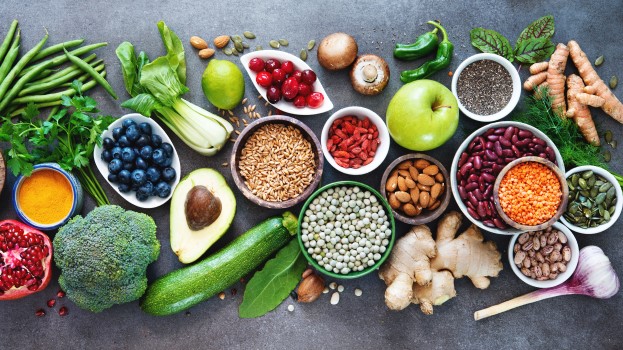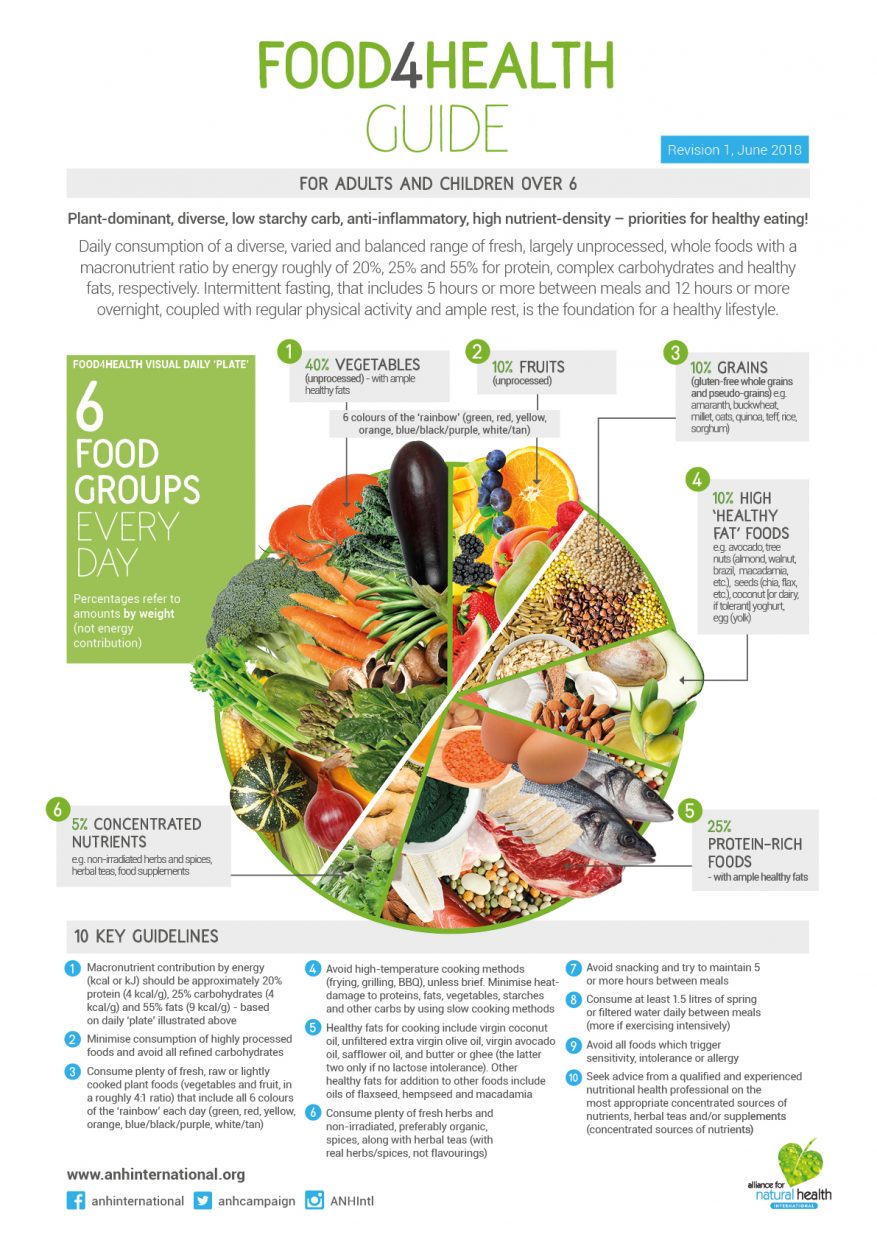How we can all improve the nutrition we get and balance our diets in our fast-paced, hectic lives – without over-complicating things.
It's easy to come across over-processed foods on supermarket shelves or wherever else we get food, but it's us who chooses what we eat. Here, health and wellbeing specialist Niamh McMahon, from Rail Safety and Standards Board, shares her knowledge to help us all understand food better and make the right choices. When we make healthier food choices, we help to improve our overall health and wellbeing, and this also positively impacts our performance at work.

Nutrition from the food we eat provides our bodies with the protein, essential fats, minerals, vitamins, and energy it needs to grow, function, and live well. So it's important to understand and follow healthy eating and drinking habits.
The British Nutrition Foundation encourages people to make meals from scratch at home instead of getting takeaways or eating highly processed foods, which can be damaging to health when eaten too often.
As indicated on the Food4Health plate (see end of the article), a high intake of colourful vegetables and fruit every day is optimal for our overall health. Try to get as much variety as you can, as each fruit and vegetable has different beneficial nutrients including prebiotics, fibre, vitamins and minerals.
Alongside an abundance of vegetables, go for whole grains, such as brown rice, brown pasta, and quinoa. Ensure an intake of good fats like avocado, oily fish, olive oil, and protein-rich food, such tofu, nuts and seeds and free-range chicken. Fish, beans, or pulses also contain essential nutrients, while fresh herbs and spices can provide concentrated nutrients and add fantastic bursts of flavour to our meals.
Our modern society bombards us daily with advertising for ultra-processed products. Supermarkets are lined with heavily processed foods that are quite often high in sugar, salt, unhelpful fats, and artificial flavours and sweeteners. While moderate amounts of these foods are ok, they are very often missing the key nutrients we need to fuel our bodies and feel our best.
Other factors affect how we eat too, including work and home pressures, the stresses of our modern, fast-paced lifestyles, general time restraints, lack of education around nutrition, poor food quality, and an over-reliance on convenient pre-packaged food. While this often does not have an immediate impact, over time this – along with other lifestyle factors, such as lack of activity and sleep deprivation – can have a negative impact on our physical health, wellbeing, and performance at work.
Nutrition is a huge topic and there is often conflicting advice from a wide variety of sources. My suggestion is to keep it simple and make minor changes for lasting results. Here are some useful tips:
- Avoid restrictive diets as they often lead to feelings of deprivation, which rarely result in long-term success. Also, diet foods are often highly processed, artificially flavoured and contain little nutritional quality.
- Except for vegetables, be portion aware.
- Become label aware – respect your body and be mindful of what you are fuelling it with. Watch out for excess salt, sugar, and artificial flavourings.
- Educate yourself on the recommended daily allowance of sugar, salt, and fat. Beware of long labels on food packets, because they tend to indicate a lack of nutrients.
- As much as possible, stick to fresh, whole foods, fruits and vegetables, wholegrains, healthy fats and fresh fish and pulses. Try to eat red meat less often.
- Eat as much variety of fresh wholefoods as you can. The more colour, the better!
- Aim to get three portions of fruit and five (or more) portions of vegetables per day.
- Remember that balance is key. Going for a not-so-healthy option every now and then is ok! Just enjoy it and get back on track at your next meal.
- Educate yourself: buy a new wholefood cookbook, and challenge yourself to cook from scratch more often. Remember that every little thing counts.
- Think health and abundance, not diet and deprivation.
- Consult a nutritionist for further guidance or if you have more specific needs.
The power lies in taking control of what goes into your body. Remember, it’s the only one you have, so be sure to look after it!


